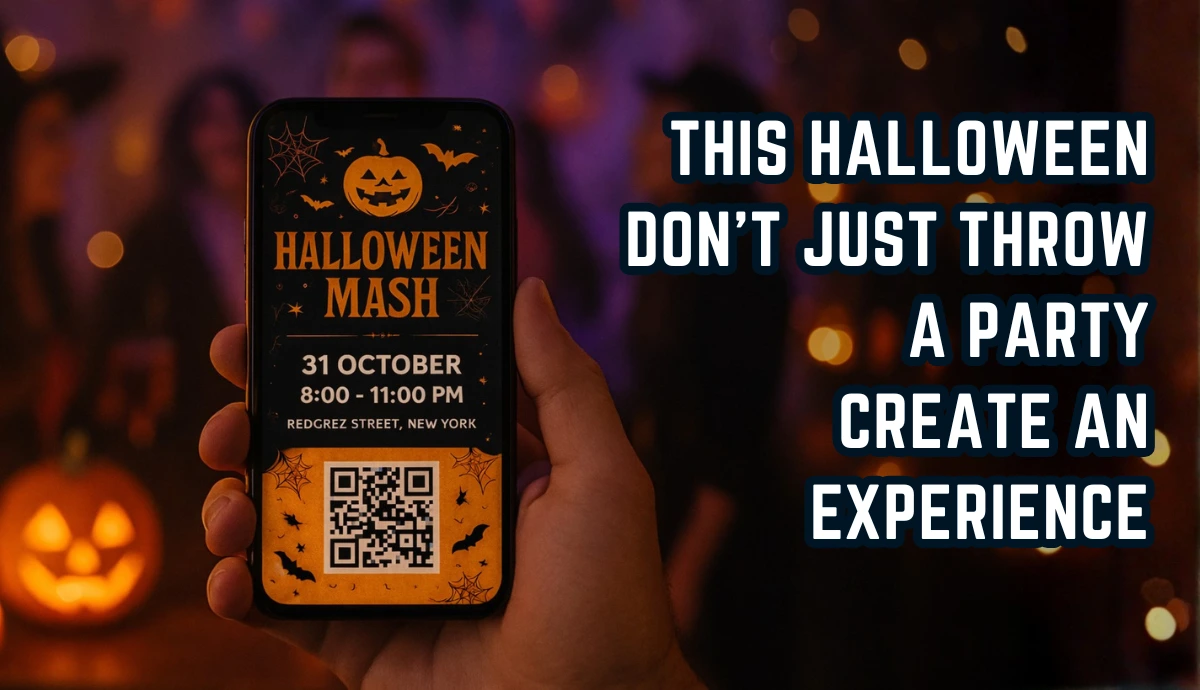In a nutshell:
- An event planner handles every stage of an event — from concept, budgeting, and vendor management to guest experience and post-event wrap-up.
- Event planners juggle multiple roles: strategist, negotiator, marketer, and problem-solver.
- Modern event planning relies on smart tools that offer registration, ticketing, and data tracking.
- Platforms like Ticket Generator
Event planning may look exciting from the outside. But every great event takes hours of teamwork, planning, and problem-solving.
Event planners handle everything from business conferences to charity galas and product launches. They turn simple ideas into smooth and memorable experiences.
They manage logistics, vendors, budgets, and registration. They also handle ticketing and last-minute issues, often all at once.
Events today are more data-driven and hybrid. Planners now rely on tech to stay organized.
Tools like Ticket Generator make their work easy. It helps with registration, ticket delivery, entry checks, and tracking attendance. This saves hours of manual effort.
In this guide, we’ll see what event planners do, what skills they need, and how they use digital tools to run great events.
A. Types & contexts of event planning
Event planners work across a wide range of events. Each event has its own purpose, audience, and set of challenges. Here are the main types of events planners manage:
1. Corporate Events
These events include conferences, seminars, product launches, trade shows, and team-building retreats.
The general goal of these events is to increase brand awareness or networking. Some events are for knowledge sharing. Planners have to handle logistics such as:
- Booking venues and speaker lineups
- Managing attendee registration and ticketing
- Coordinating sponsors and press
- Creating branded experiences
Did you know the global corporate events market was worth US$325 billion in 2023? It’s expected to reach US$600 billion by 2029, growing at about 10.6% each year (source: GlobeNewswire).
2. Social & Private Events
These events include weddings, birthdays, anniversaries, and private celebrations.
Here, the focus is more on personalization and emotional impact.
Planners coordinate everything from décor and catering to guest lists and seating.
Smooth communication and attention to detail are key.
The global wedding planner market is growing fast. It’s set to rise from US$320 billion in 2025 to US$519 billion by 2032, at about 7% growth each year. (source: fortunebusinessinsights)
3. Nonprofit & Fundraising Events
Charity dinners, auctions, and community drives rely on emotion and trust.
Planners must keep costs low and engagement high. Online tools make it easy to manage sign-ups, track donors, and record attendance, all in one place.
4. Educational & Institutional Events
This category covers graduations, university fairs, workshops, and academic conferences.
The emphasis here is on structured scheduling, speaker coordination, and attendance validation.
A planner keeps sessions on track. It helps participants easily find the right information.
5. Virtual & Hybrid Events
After the pandemic, virtual and hybrid events became the new normal.
Planners now mix online and in-person experiences. They handle livestreams, digital passes, and virtual networking all at once.
Tools like Ticket Generator make this easier. It offers automatic registration links and QR-based access. This makes managing attendees simple, whether they join online or in person.
In a nutshell:
- Event planners handle all kinds of events.
- These events can be corporate, social, nonprofit, or hybrid.
- Each event has its own goals, audience, and setup.
- Smart tools help planners save time and focus on creativity.
B. What are the core responsibilities of an event planner?
An event planner’s job starts long before the event day and continues even after it ends. Their goal is simple: turn ideas into smooth, successful experiences.
Here’s what their role includes:
1. Understanding client goals
This stage involves:
- Clarifying goals and desired outcomes
- Discussing the target audience and the budget range
- Setting measurable success indicators (attendance, engagement, ROI)
2. Concept development and planning
This includes:
- Theme ideation and storytelling
- Venue scouting and contract negotiation
- Drafting the master timeline and vendor checklist
3. Budgeting and financial management
Event planners must balance creativity with financial discipline. They:
- Create detailed budget sheets
- Track deposits and vendor payments
- Allocate funds for venue, catering, marketing, and tech
- Keep a contingency buffer for last-minute surprises
4. Vendor coordination
Planners connect clients with vendors, caterers, decorators, and AV teams.
Their job is to make deals, check the work, and ensure everyone finishes on time and within budget.
5. Marketing and attendee acquisition
For public or ticketed events, marketing plays a key role. Planners create event pages, run campaigns, and track registrations.
Using Ticket Generator, they can:
- Build branded event pages with clear CTAs
- Securely collect attendee data
- Automatically send confirmation emails and digital tickets
- Access real-time analytics to monitor sign-ups and attendance
This saves hours of manual effort and boosts conversion rates.
6. On-site execution
On the big day, planners become coordinators. They supervise setup, manage staff, and solve issues on the spot.
They ensure:
- Smooth check-ins using QR-based validation
- Vendors deliver as promised
- Sessions or ceremonies stay on time
The Ticket Validator App from Ticket Generator makes this easy. It allows instant entry scans and blocks duplicate tickets.
7. Post-event wrap-up
Once the event concludes, planners handle final payments, gather feedback, and evaluate results.
Key post-event tasks include:
- Reviewing attendance and satisfaction data
- Creating a final budget report
- Thanking sponsors and partners
- Sending follow-up emails or surveys
With tools like Ticket Generator, planners can export attendance reports. This saves hours of manual reconciliation.
Key Takeaways:
- Planners manage everything from ideas to follow-up.
- Their job includes goal-setting, budgeting, and running the event smoothly.
- Tools like Ticket Generator automate sign-ups, tickets, and reports.


C. Essential skills every event planner needs
.png)
Being an event planner takes more than good organization. It’s about staying creative, strategic, and calm under pressure.
Great planners wear many hats. They’re communicators, marketers, negotiators, and tech experts, all at the same time.
Here are the key skills and traits that define successful event planners today:
1. Strong communication and collaboration skills
Planners deal with clients, vendors, sponsors, and teams daily. Clear updates prevent confusion and delays.
Top planners:
- Share quick progress updates with clients
- Confirm every change in writing
- Build long-term partnerships with reliable vendors
2. Meticulous organization and attention to detail
An event involves many small tasks. From checking vendor times to labeling cables for sound tests. Missing even one can cause chaos.
Smart planners stay ahead with timelines, checklists, and project tools. They know every plan, contact, and deadline by heart.
For example, for a conference, a planner might maintain:
- A vendor contact sheet
- A detailed run sheet for every 15-minute
- A QR Code-based registration tracker to monitor attendance live
Pro Tip: Always build a 15–30-minute buffer into your event schedule for unforeseen delays. Also, with Ticket Generator’s zero-commission ticketing, planners keep all their earnings. They don’t lose 5 to 10 percent in platform fees..
3. Creativity and storytelling
Creativity isn’t only about visuals. Creative planners make simple events unforgettable. They start by choosing a theme. Then, they plan the decorations and setting.
They ask questions like:
- What emotion should attendees feel when they enter the venue?
- How can the event’s theme align with the client’s brand story?
- What unique touch will make guests talk about this event afterward?
4. Problem-solving and adaptability
Let’s be real, events never go 100% according to plan. Equipment fails, vendors get late, or speakers cancel. An ideal planner must step in.
Successful planners stay calm and communicate solutions.
For example, let’s say an attendee loses their ticket or forgets their email. Here, the planner can instantly resend or verify their entry. They can use tools like Ticket Generator’s Ticket Validator app. This ensures that no one gets stuck at the gate.
5. Leadership and team management
Event planners often lead teams of vendors, volunteers, and staff. Good leaders maintain high morale and remain calm in times of chaos.
A planner’s confidence sets the tone for everyone else.
Pro Tip: Start the event day with a quick 10-minute briefing. Review goals, timelines, and who handles what. It keeps everyone aligned and avoids confusion later.
6. Passion and resilience
The truth is, great planners love what they do. The hours are long, the stakes are high, and no two days are the same.
Key Takeaways:
- Great planners stay organized, creative, and calm.
- They use strong communication and problem-solving skills.
- Event and ticketing tools like Ticket Generator make planning faster and less stressful.


D. key trends in event planning
Event planning is more complex than ever. They face higher expectations, evolving formats, and a growing need for technology.
Here are some of the biggest challenges and emerging trends shaping the industry in 2025:
1. Rising attendee expectations
Today’s attendees want more than good logistics. They expect personalized, engaging experiences.
About 64% of attendees say personalised recommendations are important. Planners now use tools like AI matchmaking and smart alerts to make this happen.
This means planners must go beyond checklists.
2. The hybrid and virtual shift
Hybrid events, which are a mix of in-person and online, are now the standard.
The global virtual events market reached US$204.8 billion in 2024. And it is expected to reach US $957.1 billion by 2033 (source: IMARC Group).
Planners must now balance venue setup, streaming tech, and virtual networking. They also need to track data across both online and offline channels.
3. Sustainability as a business priority
Event planners are expected to plan while considering the environment. It is no longer optional. Digital tickets and QR Codes are simple ways to reduce waste.
4. Budget pressures and ROI accountability
Budgets are tighter than ever. Clients now expect proof of everything. ROI, attendance, engagement, and results.
Using analytics dashboards, they can track sign-ups, drop-offs, and performance in real time. This makes every decision measurable and transparent.
5. The need for stronger data security
With online registrations and payments, data safety is a top priority.
Planners must protect attendee data and prevent fake or duplicate entries.
About 71% of organizers list data privacy as a top concern (Forbes Tech Council 2025). Strong security builds trust and prevents fraud.

6. Real-time analytics and continuous improvement
Data is the backbone of modern events. Real-time dashboards let planners track sign-ups and engagement live. This way, they can make instant improvements.
According to Nunify, today’s best planners use analytics not just to report but to grow.
Key Takeaways:
- Event planners face higher demands and tighter budgets.
- Hybrid events, data, and eco-friendly planning are now key trends.
- Tools like Ticket Generator help planners work efficiently.
- They also ensure security and demonstrate real ROI.


E. Actionable tips & expert insights for event planners
.png)
Here's a list of useful, tested tips to help you run successful, stress-free events:
1. Build a clear event timeline
Start early. Six to twelve months in advance for big events. Three to four months for the smaller ones.
Next, break your timeline into small milestones.
Venue booking → Vendor confirmation → Ticket sales → Rehearsals → Follow-ups.
A clear schedule keeps everyone on track and avoids last-minute chaos.
2. Define measurable goals
Before booking anything, ask your client: What does success look like? It could be the number of attendees, lead conversions, media coverage, or funds raised.
Set clear goals so your plan matches real business results, not just looks.
3. Streamline registration and ticketing
Complex forms hurt conversions, while short ones can boost completion by 20–30%. (nunify.com).
Use tools like Ticket Generator to:
- Create a branded landing page in minutes
- Offer free or paid registration with your own payment gateway
- Automate digital ticket delivery via email or WhatsApp
- Validate entries on-site using the free mobile scanner app
This one step eliminates hours of manual data entry and speeds up check-ins.
4. Plan budgets smartly and always with a buffer
Always plan for a 10–15% contingency fund. This covers surprises, such as last-minute décor changes or equipment rentals.
Track every cost. Venue, catering, marketing, and tech, in one spreadsheet or tool. Clear budgeting builds client trust and helps avoid overspending.
5. Choose reliable vendors and backups
Vendor reliability can make or break an event. Pick at least two options for each service. Especially for AV, catering, or logistics.
Negotiate clear contracts with delivery timelines and backup plans.
6. Leverage automation and analytics
Data helps planners work smarter, not harder.
Use dashboards to track:
- Number of registrations vs. attendance
- Session popularity
- No-shows and engagement rates
7. Prioritize sustainability
Replace printed invitations and plastic badges with digital tickets and mobile check-ins.
Encourage local vendors, minimize single-use materials, and donate leftover food when possible.
Sustainable events appeal to modern audiences. They also build a positive and trustworthy brand image.
8. Collect feedback and act on it
Send short post-event surveys to attendees, speakers, and vendors. Ask what worked, what didn’t, and what could be improved. Continuous feedback loops turn good events into great ones.
A simple feedback QR Code at key locations can help you get much-needed feedback easily. You can use tools like Scanova. You can create branded feedback QR Codes with built-in forms and questionnaires.
9. Invest in the right tools
A well-chosen tech stack can reduce manual effort by up to 30 % (socialtables.com).
Your must-have tools include:
- Event registration & ticketing software (Ticket Generator)
- Communication platforms (Slack, WhatsApp Business)
- Budget trackers (Airtable, Notion)
- Presentation tools (Canva, Google Slides)
The more integrated your system, the fewer things fall through the cracks.
Key Takeaways:
- Start early and set clear goals. Keep registration easy and automate ticketing.
- Build strong vendor ties and collect feedback.
- Go green and make each event better than the last.
- With tools like Ticket Generator, you spend less time handling logistics.
- You can focus more on creating experiences that are memorable and measurable.
F. How can event planners stand out using tools like Ticket Generator?
Modern event planning needs efficiency and accuracy. Ticket Generator is built for both. It helps planners manage the entire attendee journey without using multiple tools.
Here’s how:
1. All-in-one workflow: You can create a branded event page and collect registrations easily. You can also send digital tickets and validate them from a single dashboard.
2. Zero commission: Ticket Generator lets you keep 100 % of your ticket revenue.
3. Instant delivery: Send tickets automatically via email, SMS, or WhatsApp in seconds.
4. On-site validation: Free Ticket Validator app scans QR Codes and prevents duplicate entries.
5. Real-time analytics: Track registrations, attendance, and engagement to prove ROI to clients.
For event planners, this means less manual work, faster check-ins, and happier clients. You also get full control over your branding and attendee data.


Conclusion
Event planners are the creators of experiences. They turn ideas into moments people remember.
They manage vendors and budgets while designing smooth guest journeys. Their work requires creativity, focus, and flexibility.
In today’s fast-paced world, the right tools make all the difference. Ticket Generator simplifies the hard parts: registration, ticketing, tracking, and analytics. This lets planners focus on what truly matters. Creating events that inspire and connect.
If you want to save time and work smarter, try Ticket Generator for your next event. See how effortless great planning can be.
G. FAQs: What Does an Event Planner Do?
1. What exactly does an event planner do?
An event planner takes care of everything for an event. This includes budgeting, picking a venue, marketing, and registration. They also manage on-site coordination to make sure everything runs smoothly.
Their goal is to create a seamless experience that aligns with the client’s vision and goals.
2. How is an event planner different from an event coordinator?
A planner handles the full event lifecycle, concept to completion. A coordinator focuses on managing execution and logistics during the event. In short, planners design the strategy; coordinators make it happen.
3. What skills are essential for an event planner?
Communication, organization, budgeting, and creativity top the list. Today, planners also need digital skills. They must know how to use tools for registration, ticketing, and tracking event data.
4. Can event planners handle both virtual and in-person events?
Absolutely. Many planners now focus on hybrid events that mix live and online experiences.
Tools like Ticket Generator make this simple. They handle online sign-ups and QR check-ins for in-person guests on one platform.
5. What tools should every event planner use?
Essential tools include:
- A ticketing and registration platform (like Ticket Generator)
- Project management tools (Trello, Notion)
- Communication channels (Slack, WhatsApp)
- Budgeting software (Airtable, Google Sheets)



Author -
Ashish Chandra
Ashish Chandra is a content strategist and SaaS writer with 4+ years of experience in event technology and marketing. At Ticket Generator, he creates clear, actionable content that helps event organizers plan seamless events, boost ticket sales, and enhance attendee experiences with smart QR-based tools.
Over the years, Ashish has collaborated with multiple SaaS and B2B brands, helping them grow through storytelling, data-driven SEO, and user-focused content strategies. He’s passionate about making event tech simple, accessible, and truly impactful for organizers worldwide.
When he’s not writing, you’ll find Ashish exploring nature trails, going on treks, or tending to his garden, his favorite way to recharge and find inspiration.





.gif)





